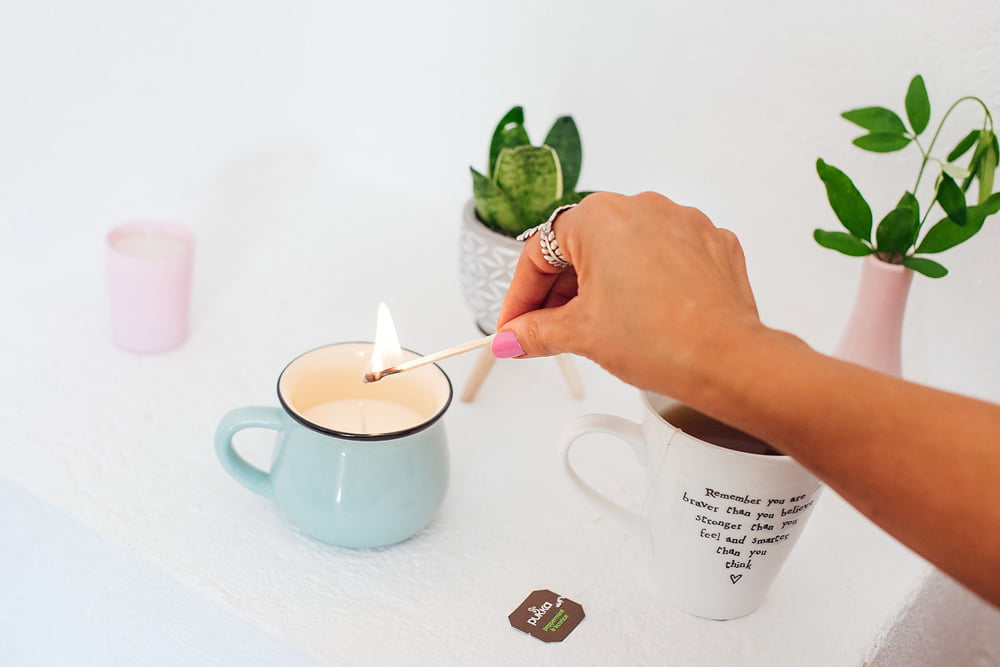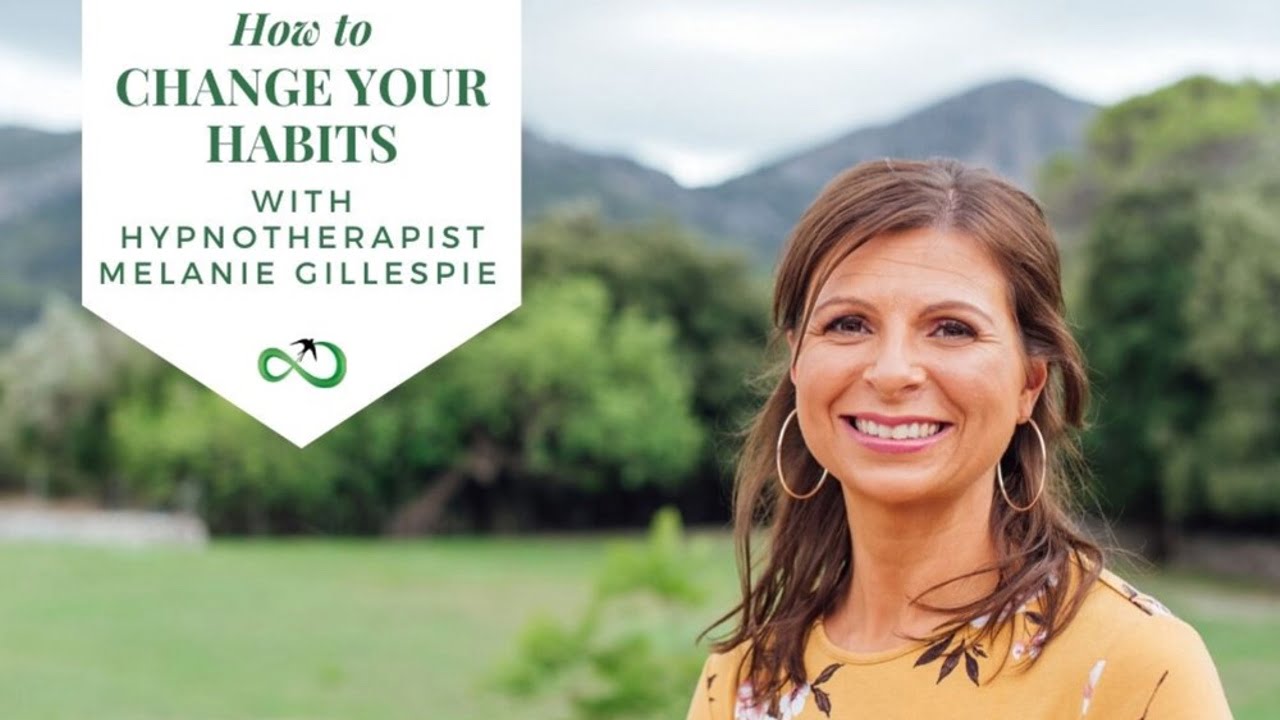To many of us New Year means “change”: trying out new routines, diets and hobbies, enforced by the media by the “New Year New Me” model. But if you are serious about long-term change in your life, you will know that it takes more than just a change in the calendar to do so.
Many of us tried changing habits once, twice or even hundreds of times with varying degrees of success. So what is it about habit change that sometimes makes it complicated and not so straight forward?
This week I’m chatting to hypnotherapist Melanie Gillespie about the ins and outs of habit change, beliefs and mindset. So if you’d like to learn how to get really good at changing habits and bust through limiting beliefs and other blocks, this one's for you.
People often come to see you as they want change in their lives, often related to their mindset and beliefs. What are the most effective habit change techniques?
What a great question! Well, most of us are aware at a conscious level what changes we need to make in order to improve our health. The challenge is that the vast majority of our behavioural patterns happen at a subconscious level of mind. This basically means we repeat so many patterns of behaviour that we become competent at doing them on autopilot. This is great when you want to drive a car or tie your shoelaces without thinking about it, but not so helpful when you’re opening a second packet of chocolate biscuits because you’re bored in the office!
Of course we can consciously choose not to do these things (which is willpower) but this becomes exhausting when we have to continually battle against the other voice in our mind wants us to carry out our learnt behaviours.
So the most effective habit-changing techniques are those whereby we can learn to change habits we hold at a subconscious level to match up with the desired behaviour we consciously know would be better for us. This is in essence what I do with all my hypnotherapy clients.
From your experience, what are the common qualities of people that can implement sustainable, life-long changes to their lives? Are these qualities innate, or something that can be learnt?
We can all learn how to use our mind to our advantage. In my experience the people who do this successfully aren’t any better than anyone else, they just have a strong enough desire to change. They have a clear goal or reason for wanting to do it and then make it happen.
What can you advise to people who believe that they are too old to change, have no willpower or that change will be too hard?
I truly believe that everyone has the ability to create life long changes within themselves. Age, length of the habit or why you started doing it in the first place needn’t hold you back from successfully building a new habit. As mentioned previously, willpower can feel very hard as we are battling against our own thoughts and fear usually stems as a byproduct of not wanting to face that battle. But by learning how to change our subconscious habits, the whole process of change can become an easy and enjoyable one.
How do you advise to manage the fear of change?
I would advise first to recognise the fear for what it is. Whilst it feels uncomfortable, it isn’t going to harm us. Fear is there to stop us from doing something the brain believes isn’t safe for us, which is fabulous when it makes us feel fearful of something rational such as standing too close to a cliff edge, not so helpful when we fear how we could possibly get through a weekend without a glass of wine.
So recognising the feeling first and then learning to sit with it is very helpful, it might feel uncomfortable the first time you don’t carry out a behaviour the brain is expecting (such as going without a food or alcohol binge), but it feels very empowering to move through that fear and realise it was only your own thoughts.

I have recently seen you mention low self-esteem as a common theme in your practice. What do you find most effective in boosting self-esteem long-term?
I find engaging in regular positive activities is a huge help for self-esteem. This could be partaking in sports, creating something, learning a new skill or even helping out in the local community. These all boost our levels of serotonin and help us feel like our existence is worthwhile.
What daily practices would you recommend to somebody, who struggles with changing habits?
I would highly recommend getting clear on the reason WHY they want to change. Perhaps write a list of positive outcomes they would like to focus upon and stick the list up somewhere they will see regularly. Helpful questions to aid this are:
- Why do you want to change?
- What will be better about life after the change?
- Who else will be impacted positively by your change?
- What difference would this change make to your wellbeing?
- How will you feel after accomplishing this?
The key to any successful change is to refocus your mindset from what you are giving up into focusing on all that you will gain.
You’re a big advocate of self-care and wellbeing- mind and body. What are your favourite types of self-care and what do you think is most important to keep up when life gets busy?
Yes, I think self-care is a vital component to our wellbeing. It is often portrayed as simply taking time out for spa days and fancy retreats, but I think if we prioritise self-care in smaller ways more regularly, we can manage our stress so it doesn’t end up becoming too much. For me, self-care is through practises such as learning to say no when you need to (and not feeling guilty for doing so!).
It is valuing meditation in the same way that we need to eat and sleep.
It is being mindful of how many negative influences you allow around you (such as watching too much drama on tv or spending time in stressful social circles).
And lastly making regular time for an exercise or form of movement you enjoy.
Back in July 2018 you have gone alcohol-free. What was the influence for the decision and what changes have you noticed in that period? What advice do you have to somebody who would like to reduce their alcohol intake?
Yes I did! I personally have quite an “all or nothing” element to my personality and this applied to drinking as much as anything else. The more I studied Hypnotherapy and how the brain works, the more aware I became of my own habits and behaviours and which ones I didn’t want anymore. I realised the downsides of drinking, such as the hangovers and weight gain were starting to outweigh the fun, and ultimately drinking had become a habit that was actually stopping me from being who I wanted to be.
I knew I wanted to be fit, healthy and strong, but I had to change my behaviours if I wanted that to become my reality. So I worked through each of the subconscious beliefs I held about drinking and used hypnosis to change my mindset. For example I used to think drinking was the most enjoyable part of a weekend, so I changed my focus onto all the amazing things I could do on a weekend without a hangover and those then became the activities I looked forward to.
Out of all the changes I’ve made in my life, going alcohol-free has got to be up there with the best. I certainly had some fear before I made the change, but I have never looked back since.
For anyone looking to reduce their intake or stop, I would again recommend writing a list of all the reasons you want to. Then also write down all the things you will be able to do that drinking stops you from, such as being more productive, sleeping better, exercising more, spending time on hobbies or even playing with the children more.
There are a lot of positive “quit lit” books out now around going alcohol-free and there is a better selection of alcohol-free drinks in the supermarkets than ever before, so it is a great time to make the change.

Let’s talk motivation. How can someone sustain motivation to change when it starts to wane?
Well, one of my favourite quotes is “You will never always be motivated, so you need to learn to be disciplined” and I think it is so true!
If we rely on always feeling pumped up and ready to go, soon enough we’ll run out of steam. Real self-love is learning how to be disciplined with yourself so you stay on track towards your goals, even on the days you don’t feel like it.
What are your favourite resources or self-help books to help with habit, mindset and belief change?
I personally really enjoyed Allen Carr’s Easyway to Stop Smoking, which he rewrote to apply to drinking and weight loss too. For alcohol, I really enjoyed The Sober Diaries by Clare Pooley and The Unexpected Joy of Being Sober by Catherine Gray.
There is also a brilliant movement called One Year No Beer who you can follow on Facebook, they are two brilliant guys who provide a wealth of free content around mindset and habit change.
Thanks so much, Melanie!
Melanie Gillespie is a Clinical Hypnotherapist and Psychotherapist based in Frenchay, Bristol. She has worked with hundreds of clients over the last four years specifically around anxiety and creating lifestyle changes. She is passionate about helping others learn to empower themselves through understanding how their mind works and regularly posts tips and tricks on her Facebook and Instagram pages, so make sure you give her a follow!



